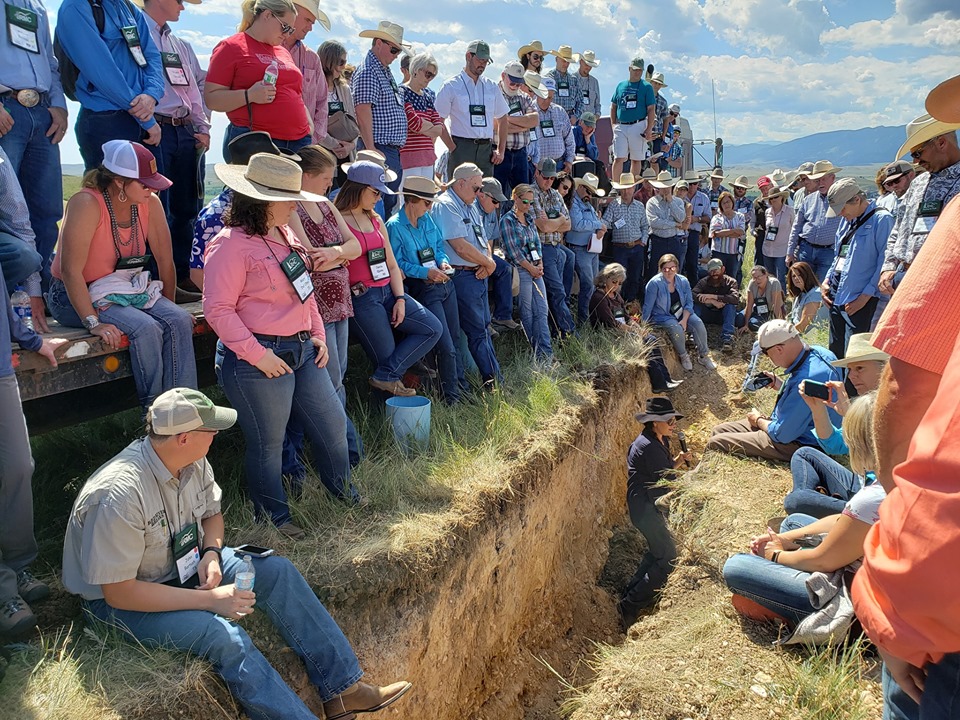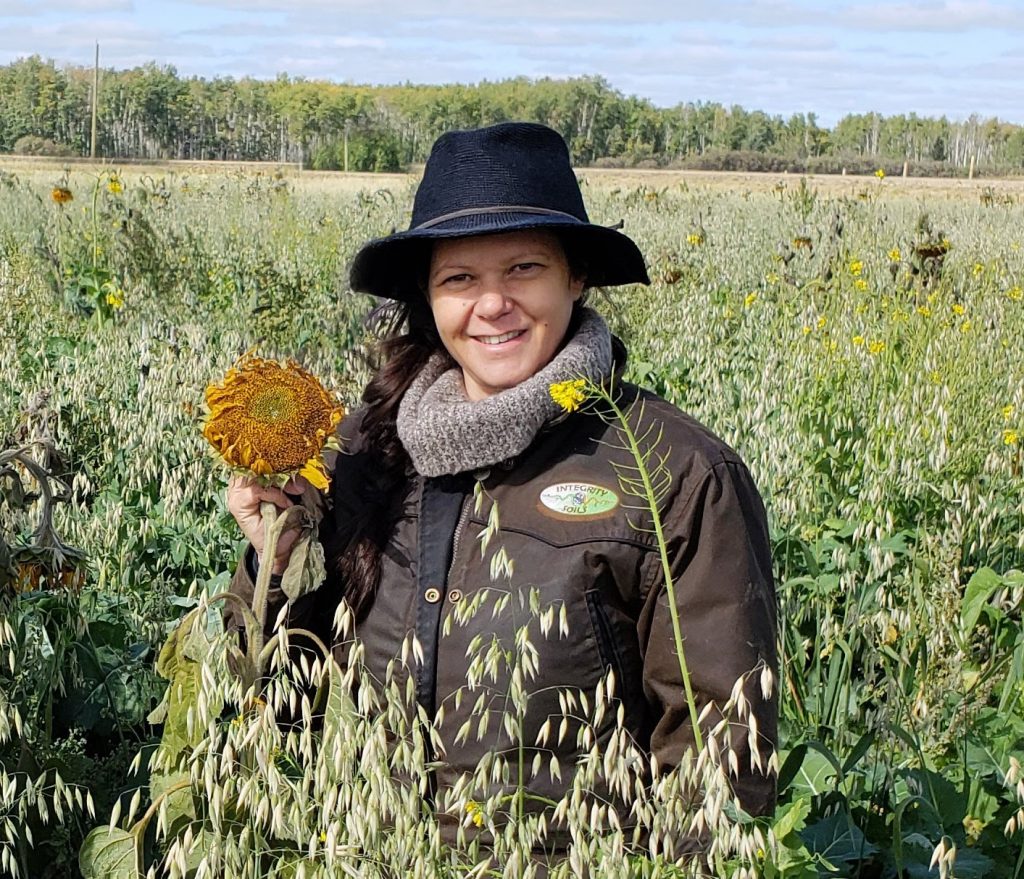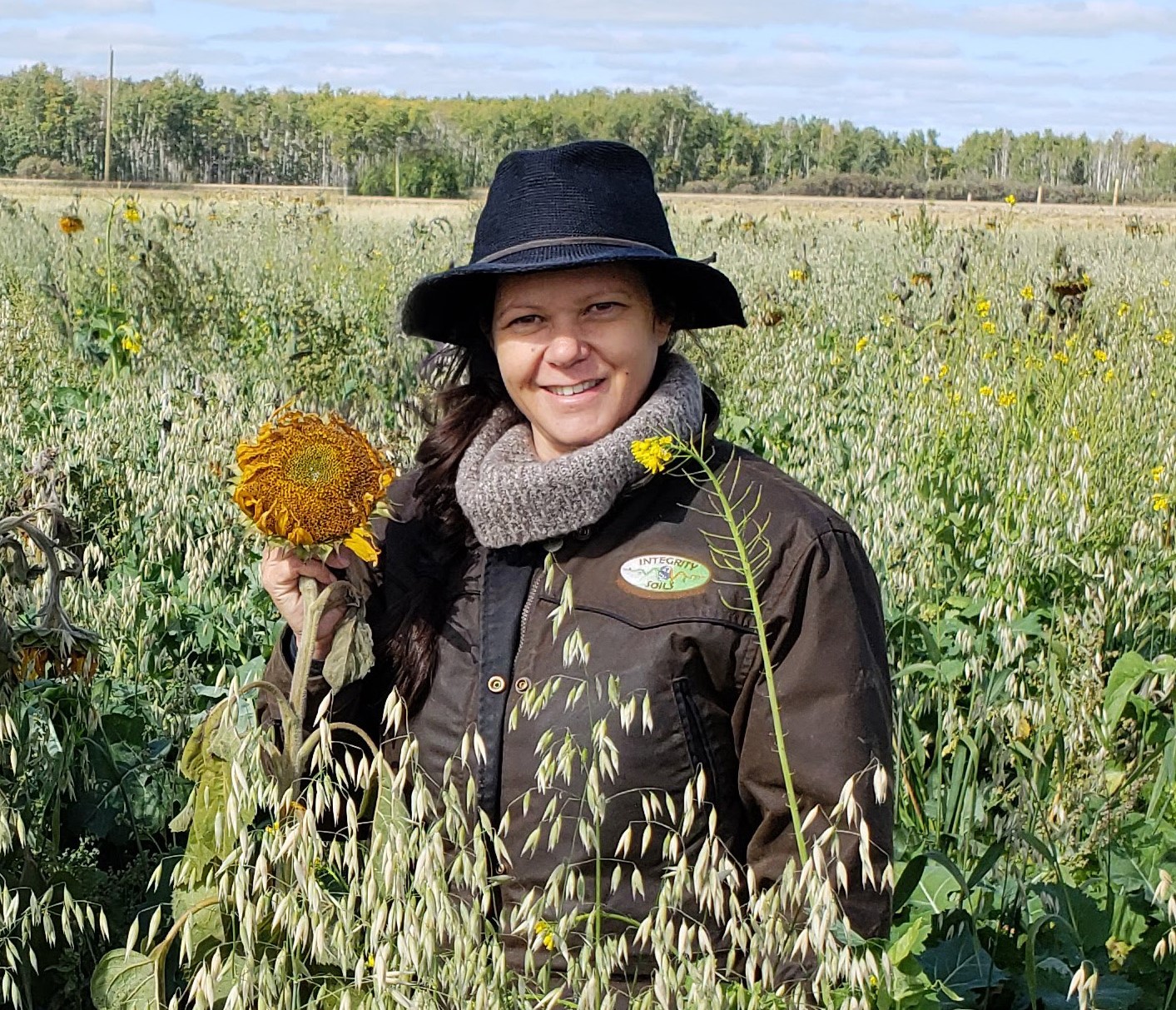Journey to Soil

By Nicole Masters
Life before soil
As a child I never dreamt I would fall so deeply in love with soil.
I grew up as an “Air Force brat,” with early dreams of becoming New Zealand’s first woman fighter pilot. As a teenager I joined the youth Air Training Corp and quickly realized that “no pimply faced boys were going to tell me what to do!” I’ve always been more comfortable in male-dominated sectors, and moving into a rural community in my 20s was no different. In the past it was in fact women who terrified me. I felt like they weren’t being honest, or they were in competition with me somehow. I just felt like women wanted to talk about topics I had absolutely no interest in, and they didn’t get me.
Over the past few decades, I’ve transformed my relationship with myself. And through this journey, I discovered that in my deepest self, I resented being born a woman. I saw the fairer sex as weak or boring, with fewer opportunities in the world. And yet as I’ve stepped more into my womanly-ness, I’ve found myself surrounded by deeply connected, powerful and fascinating women. Women who have the freedom to express themselves authentically, who can bare their souls and dare to be vulnerable in a world that in the past has expected us to shut up, stay in the kitchen, or put on a stiff upper lip in the face of adversity. In all of my early discomfort, the core of my issues with women dwelled in my own heart.
Motherhood
Becoming a parent was another aspect of being a woman that didn’t come naturally to me, and another piece that has flipped my worldview on its head. I’ve learnt so much about myself and ecological thinking from becoming a mother.
One day as I was driving my son Bryn to pre-school, he asked a question: “What is that coming out of the trees?” It was early morning and thick mist was ejecting from the forests blanketing our hills. I’ve always been one to have “the answer.” And the answer I had primed in response to his question was along these lines: “Well, it’s due to cold air and the transpiration of water from stomata on leaves. When the cold meets warmer air, it forms an inversion layer .…” You get the picture. In all honesty, it wasn’t always an easy ride for my son, growing up with me! Instead, I paused for a moment, took a breath and replied to his question with: “I wonder?” He looked up at me with his beautiful hazel eyes and said, “it’s dragon smoke.” Ahh, so much more creative and interesting than my answer!
I’ve come to see my tendency for quick answers as a barrier to being present to what the world has to offer. Frankly, with so much new research coming out about consciousness, dark matter and microbiological processes, it’s clear we understand very little of the world around us. This moment with my boy led to an epiphany, that this was a way he and I could explore our topics together in the future. I’m a far better teacher when I encourage free thinking than when I give black and white answers. And as we all know, nothing in ranching exists in black and white.
Regenerative agriculture
In the past century, there have been massive breakthroughs in scientific understanding that have transformed the way we observe the universe and ourselves. Revolutionary theories in quantum physics, mathematics, consciousness and the very nature of reality have deepened our scientific understanding to see that, yes, everything is connected, and yes, everything is energy. While many scientific fields took great leaps forward, the natural sciences of agriculture, soil and agronomy continue to draw upon 19th century linear, reductionist models, seeing life as “machine.” This “life as machine” is a masculine world view, a view of control and domination—linear, hard clear facts, devoid of any emotion.
My work as an agroecologist involves coaching ranchers and farmers about the connection between soil and, well, everything. Soil in the past has been viewed through a reductionist lens, valued for is physical and chemical make-up and as an anchor for plant roots. This cold, heartless look at soil overlooked the fact that soil is vibrantly alive and employs rich communication channels. Plants share resources and communicate with each other and with their microbial workforce, using signals we are only just becoming aware of. Plants and their microbial livestock have a natural intelligence which fosters diversity and collaboration to strengthen their communities and increase resilience to stress.
Women on the land
Regenerative Ag offers unique, paradigm-changing systems and information. In this, I believe being a woman offers more opportunities, not fewer. My field of work embraces femininity and sensitivity, and that, in turn, creates a space that enables producers to safely soften and connect more deeply with land, grass and animals. Agriculture is evolving before our eyes, and women are catalysts in opening up conversations enabling producers to talk about things that were previously taboo—feelings, love, being vulnerable, and listening to land. What does it truly mean to be a steward? How do we heal from past land traumas?
When I look at many of the leading lights in regenerative biological systems thinking, there is a higher representation of women than in other male-dominated sectors. Consider Dr. Elaine Ingham, Dr. Kris Nichols, Dr. Jill Clapperton, Dr. Mary Cole, Dr. Christine Jones, Dr. Gwen Grelet, and the women who are communicating this valuable work, such as Judith Schwartz and Didi Pershouse. Then add into the mix the stand-out women farmers, ranchers and growers like Wendy Millet, Elaine Patarini, Sallie Calhoun, Betsy Ross and Trudi Kretsinger, who are demonstrations of the principles on their own land. These women are my heroes and my sources of inspiration.
We are seeing a growing number of powerful women influencing change on a global scale. They are bringing a deeply needed sense of the feminine into agriculture, one of empathy, love, collaboration, inter-connectedness and care which is just what the world needs now. I see these networks like the mycelial fungal networks which weave right across the planet.
Lifting soil health, building resilience and ranch performance starts with the use of all our senses. This includes tapping into our sense of wonder. We are now moving into the next phase of agriculture, what researchers are calling agro-ecological or “post-modern” agriculture. The future of agriculture requires a transformation in how we see, think, and act in the food production spaces. One in which women are poised to play essential roles.
I am grateful for my son and teacher, Bryn, who understands the journey I am on. He and all future generations are the reason we must all take a stand for soil, water, air, ecosystem and human health.
About the author

Nicole Masters is an independent agroecologist, systems thinker, author and educator. She has a formal background in ecology, soil science and organizational learning. She has been providing agricultural consulting and extension services since 2003. Nicole is recognized as a knowledgeable and dynamic speaker on the topic of soil health.
Her team of soil coaches at Integrity Soils work alongside producers in the U.S., Canada and across Australasia, supporting producers who work with over 1.1 million acres to take their operations to the next level in nutrient density, profitability and environmental outcomes.
Nicole is one of a growing number of people who are facilitating a rapidly expanding world of quality food production and biological economies.
Her book titled “For the Love of Soil” showcases examples of the tools and principles producers are using to regenerate their soils, describing a step-by-step triage of actions so that you too can regenerate your land. Learn more about Nicole’s work at https://www.integritysoils.co.nz/.
About Women in Ranching
Learn more about Women in Ranching here. If you are: not yet part of a Circle but want to be; own or manage a ranch, and able to host 20+ women for 3 days; or interested in becoming a corporate sponsor or learning more about different ways of supporting Women in Ranching, contact Amber Smith: Amber@westernlandowners.org.
Join WLA to stay up to date on the most important news and policy for land stewards.
Become a member for free today and we will send you the news and policy developments critical to the economic and ecological health of working lands.
WLA works on behalf of landowners and practitioners throughout the West. We will never share your contact information with anyone.
©2026 Western Landowners Alliance • PO BOX 27798, Denver, CO 80227 • 505.466.1495
Western Landowners Alliance is a 501 (c)(3) non-profit recognized by the IRS.
Tax ID: 46-1346488
